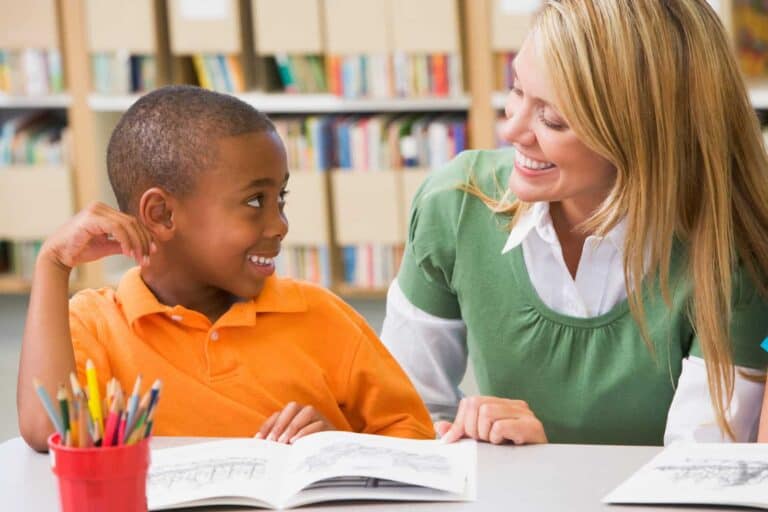6 Harsh Homeschooling Stereotypes: Debunking the Myths
Dealing with homeschooling stereotypes?
If you’ve ever considered homeschooling your child, you’ve probably come across a few myths about homeschooling.
In this blog post, we’ll debunk some of the most common homeschool stereotypes and show you why they’re not true.
What are homeschooling stereotypes?
Homeschooling stereotypes are misconceptions about homeschooling that often paint homeschoolers in a negative light.
Some common examples include the belief that homeschooled children are isolated, lack social skills, or are not prepared for college and the workforce.

Why aren’t these stereotypes true?
1). Homeschoolers have plenty of opportunities for socialization. In fact, many homeschoolers participate in co-ops, extracurricular activities, and community events that provide ample opportunity for socialization and interactions with peers.
2). Homeschooled children are often well-prepared for college and the workforce, thanks to a personalized education that allows them to excel in their interests and pursue individualized goals.
3). Homeschooling does not isolate children from the world. Homeschoolers have access to the same resources and technology as traditional school students, and often have more opportunities for real-world experiences through field trips and community involvement.
Overall, homeschooling is a valid form of education that can provide unique opportunities for individualized learning and growth. Don’t let these stereotypes deter you from considering homeschooling for your child. Do the research, weigh the options, and make the best decision for your family’s education journey.
Remember – every homeschooling experience is unique and there is no one-size-fits-all approach to education. Keep an open mind and trust in the power of personalized learning.
Popular Homeschooling Stereotypes (that aren’t true)
Homeschoolers are social outcasts
One of the most common misconceptions about homeschoolers is that they’re social outcasts who don’t have any friends.
This simply isn’t true! In fact, many homeschool families are very active in their local communities.
There are also many extracurricular activities and homeschool groups that provide opportunities for homeschoolers to interact with their peers.
Homeschooled kids are behind academically.
Another common misconception is that homeschooled kids are behind their peers academically.
This is also not true! Homeschooled kids often outperform their traditionally-schooled peers on standardized tests.
They also tend to have higher GPAs and are more likely to be accepted into colleges and universities.
Homeschooling is too expensive
Some people believe that homeschooling is too expensive because you have to buy all of the supplies and materials yourself.
However, there are many ways to save money when homeschooling.
For example, you can borrow books from the library, buy used materials, or take advantage of free online resources.
Homeschooling is only for religious families
Finally, some people believe that homeschooling is only for religious families who want to shield their children from the outside world.
However, this isn’t the case! Homeschooling is becoming increasingly popular among secular families for a variety of reasons, including the flexibility it affords and the ability to tailor the curriculum to your child’s individual needs.
Homeschoolers don’t learn anything about real life
Another myth is that homeschooled kids don’t learn about “real life” because they’re not in a traditional school setting.
Homeschoolers have many opportunities to learn about the world and engage with society through field trips, community involvement, and hands-on learning experiences.
Homeschoolers are super awkward and can’t function in society
Some people believe that homeschoolers lack social skills and won’t be able to function in society because they haven’t had the same experiences as their peers. This simply isn’t true!
Homeschooled kids have just as much potential to develop social skills and succeed in life as any other child.
FAQs
Can homeschooled kids go to college?
Yes, homeschooled students can definitely go to college.
In fact, they often have higher GPAs and are more likely to be accepted into top universities.
Can I still work full-time if I decide to homeschool my child?
Many families successfully balance homeschooling and full-time work.
It’s important to create a schedule that works for you and your family, and to prioritize communication and planning with your child.
How do homeschooled kids get a high school diploma?
Homeschooled students can earn a high school diploma by passing state-recognized exams or through a portfolio assessment process.
They can also participate in dual-enrollment programs and take college courses while homeschooling.
Can I homeschool my child if they have special needs?
Yes, many families successfully customize a homeschooling curriculum to meet their child’s individual needs.
It’s important to do research and consult with professionals to ensure that your child’s educational needs are being met.
How do homeschooled kids learn about subjects they may not be interested in?
Homeschooling allows for a personalized and individualized education, so families can focus on the subjects their child is most interested in while also ensuring that they receive a well-rounded education.
This can be achieved through a combination of hands-on learning experiences, online resources, and community involvement.
Can homeschooled kids participate in extracurricular activities?
Yes, homeschooled children have the same opportunities to participate in extracurricular activities as their traditionally-schooled peers.
This may include sports teams, community theater, volunteering, and more.
Can homeschooled kids still take standardized tests like the SAT or ACT?
Yes, homeschooled students can take standardized tests and many go on to do well on them.
Some states also offer standardized testing for homeschooled students. It’s important to check with your state’s regulations and requirements.
Can I change my mind and decide to enroll my child in traditional school?
Yes, families can always make the decision to switch from homeschooling to traditional schooling or vice versa.
It’s important to consider your specific circumstances and what will work best for your child’s education.
More Homeschooling Tips
- Minimalist Homeschooling: Is it Possible?
- Minimalist Homeschooling: Is it Possible?
- Some Advantages and Disadvantages of Homeschooling You Probably Didn’t Realize
If you’re considering homeschooling your child, don’t let these common myths stop you! As you can see, none of these stereotypes hold any truth.
Homeschooling can be a great option for kids of all backgrounds and abilities.






